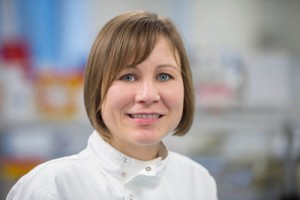Breakthrough in fighting liver disease
Posted: 3 September 2015 | Victoria White
The University of Brighton has announced it is sharing in a €5.9m EU grant to support the development of a new treatment for chronic liver disease…


The University of Brighton has announced it is sharing in a €5.9m EU grant to support the development of a new treatment for chronic liver disease.
Cirrhosis of the liver affects 29 million Europeans, claims 170,000 lives every year and costs the EU almost €16bn.There are several causes of liver disease but the increasing incidence of obesity and excessive alcohol consumption is causing a rapid rise in the number of cases seen across Europe.
Changes in the bacteria that populate the gut in patients with liver disease make the condition worse and can lead to a range of additional health complications. Current treatments include the use of antibiotics to kill the gut bacteria but the long-term use of these drugs can result in antibiotic resistance and can be very costly.
The University of Brighton’s School of Pharmacy and Biomolecular Sciences will receive £189,751 of the grant for laboratory work to assist with trials of a new and safe nanoporous carbon that acts in the gut to reduce the entrance of bacterial products into the blood which exacerbate liver injury.
Nanoporous carbon could provide a cost-effective strategy for liver disease management
The school’s Dr Susan Sandeman said, “In cirrhosis, current therapy to prevent recurrent complications of advanced cirrhosis is to use poorly-absorbed antibiotics. But long-term antibiotic therapy has problems associated with bacterial resistance and this can prove costly.”


Susan Sandeman
Dr Sandeman continued, “We will be part of a consortium investigating the safety and efficacy of this novel nanoporous carbon in patients with liver disease and developing an innovative and cost-effective strategy for disease management.”
The EU research project, called CARBALIVE, has received funding from the European Union’s Horizon 2020 research and innovation programme under grant agreement number 634579.



